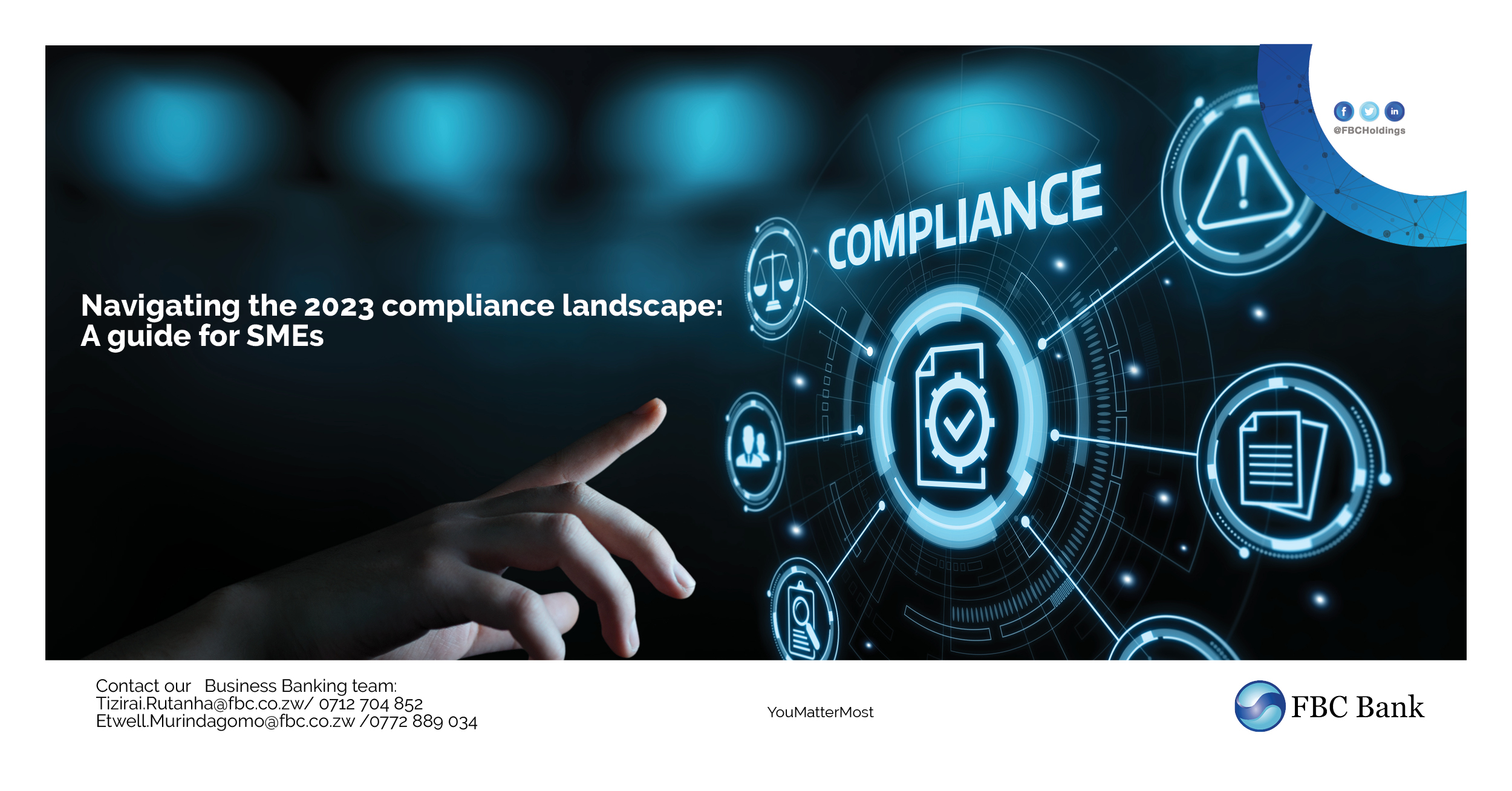
As an SME business owner, navigating compliance can feel like trying to navigate a maze blindfolded. You know it is important, but with so many laws and regulations, and a fast-paced business environment, it can be difficult to keep all the plates spinning. The good news is that, entrepreneurs do not have to navigate this maze alone. With the right tools and information, compliance can be manageable. In this article, we will explore three crucial areas of compliance that every SME should be aware of in 2023.
1. Company documents: The foundation of credibility
When it comes to operating a business, credibility is key. Without it, an SME may not be legally protected, and it may be difficult to access loans. That's why so many SMEs register as Private Business Corporations (PBCs). This organizational structure is adopted by sole traders, small businesses and individuals.
To be recognized as a credible PBC, SMEs will need to have certain documents on file. These include:
i) A certificate of incorporation
ii)A CR28 form, which includes information about the company's name, number, addresses, accounting officers, and members. By having these documents in order, the business will be taking a big step toward compliance and credibility.
2. Tax remittances: Paying your fair share
As a registered taxpayer, an SME has certain obligations when it comes to tax returns and remittances. SMEs are required to register with the Zimbabwe Revenue Tax Authority within 30 days of starting to trade and are issued a Tax Clearance Certificate.
It is important to be aware of the statutory obligations relating to tax returns and remittance of tax. This is to say, registered or licensed SME business owners are required to maintain necessary records, furnish tax returns and remit the taxes within the timeframes set by the regulators, Zimbabwe Revenue Authority (ZIMRA) and National Social Security Authority (NSSA).
Non-compliance in this area can lead to significant financial and administrative penalties; so it is crucial for an entrepreneur to stay on top of their business’ tax obligations. SMEs should also be aware of the operational requirements of National Employment Council and Local Council.
3. Accounting records: Keeping track of the business
Proper record-keeping is essential for compliance, and it's also good for business. All SMEs are required to keep records and books for at least eight years from the completion of transactions or operations. This is in compliance with Section 140 of the Companies Act (Chapter 24:03).
By keeping accurate records, an entrepreneur will be able to formalize their business operations and adhere to reporting standards. It also makes it easier to track the business' progress and identify areas for improvement.
To sum it all up, compliance is an ongoing process, but it can be manageable with the right tools and information. By understanding the importance of company documents, tax remittances, and accounting records, SMEs will be well on their way to compliance in 2023. Remember, compliance isn't just about following the rules – it's about protecting the business and ensuring its long-term success.

